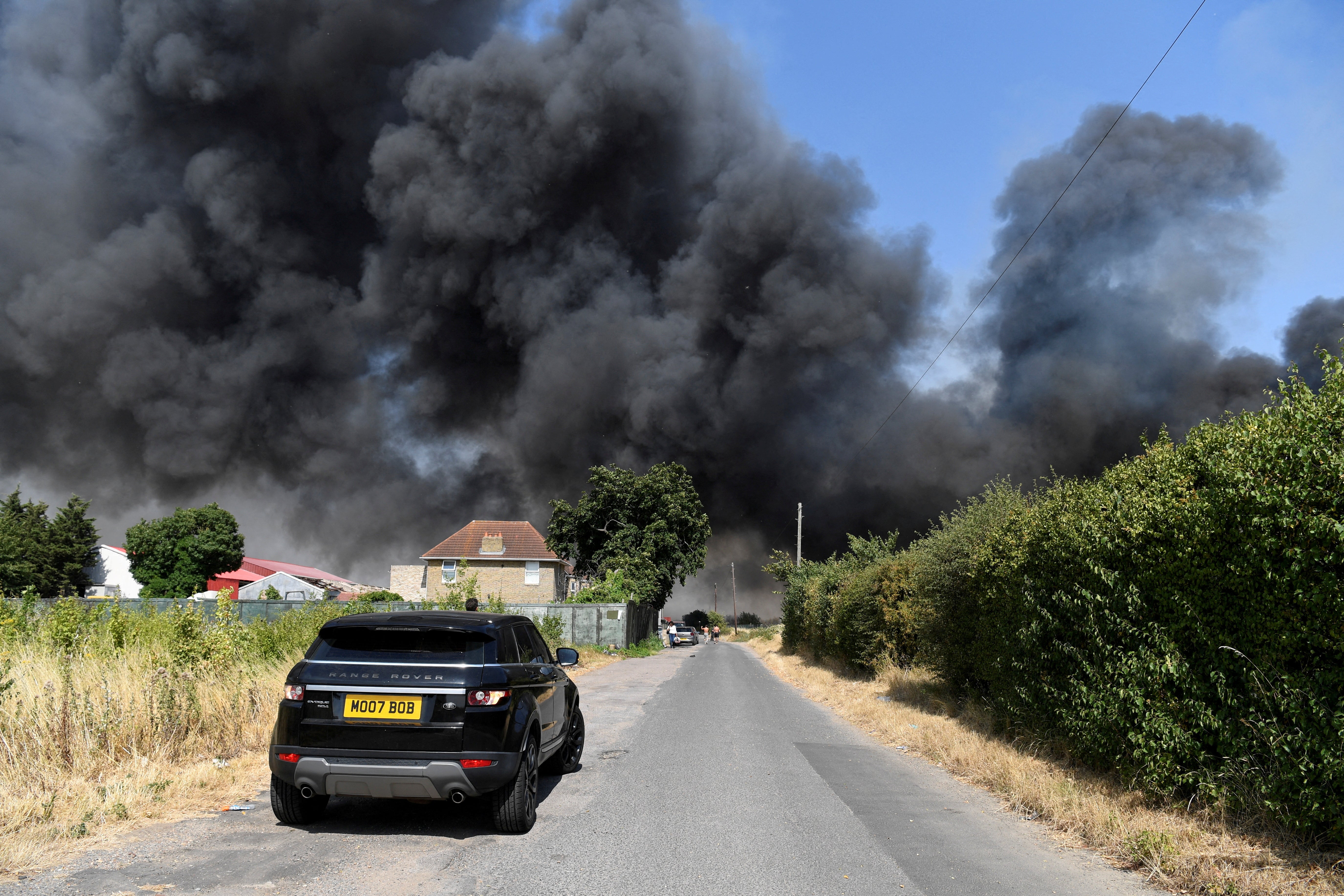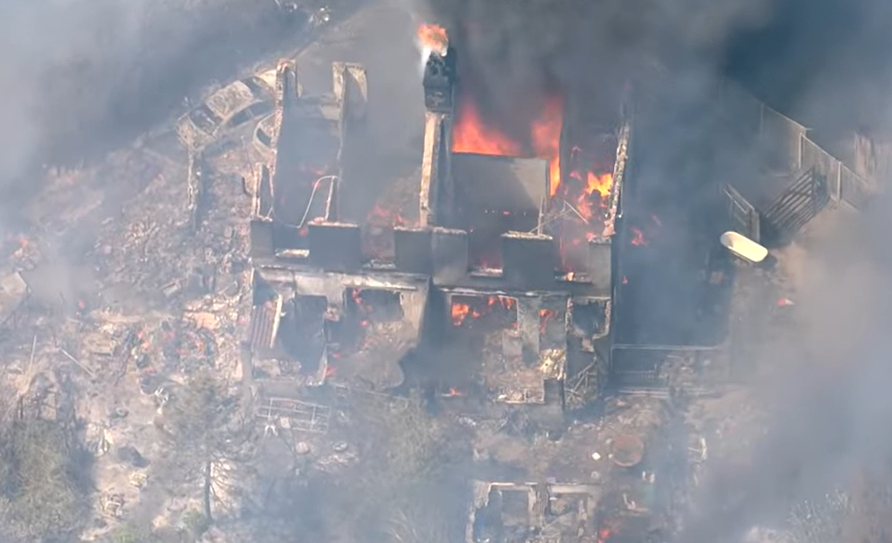Major incidents declared in parts of England as country swelters in record 40.3C heat
Firefighters battled major blazes across England after days of exceptional heat left much of the country tinder dry
Britain smashed its all-time temperature record on Tuesday as intense heat fuelled dozens of serious fires and brought chaos to transport and schools across England and Wales.
The mercury hit 40.3C in Coningsby, Lincolnshire – one of 34 locations across England in which the previous 2019 record was broken.
Fire services declared major incidents in London, Nottinghamshire and Leicestershire after exceptional heat left much of the country tinder-dry, piling pressure on already-stretched services.
Flames destroyed several homes in the village of Wennington, east London, and other residents were evacuated while a trackside blaze near Harrow forced the suspension of all trains on the west coast main line out of London Euston.
Boris Johnson tweeted thanks to “all the firefighters and frontline services” working to keep the public safe while his cabinet colleague Kit Malthouse said emergency services were “generally coping well”.
Ed Miliband, shadow secretary of state of climate change and net zero, said reports of fires across the country were “deeply distressing”. He said it was a “frightening truth” that Tuesday’s high temperatures could soon be seen as the new normal in Britain.

“Britain is in no way prepared for this new reality because of years of neglect by this government,” he added.
“It’s the hottest day ever in the UK, London is literally on fire, we’re in a national heat emergency – and yet when we need a giant fire hose, the government is turning up at the scene with a watering can,” said Caroline Lucas, the Green MP for Brighton Pavilion.
There are fears that post-heatwave thunderstorms could bring flash floods and power cuts.
Fire crews battled at least 22 wildfires in England and Wales between 11am and 5.30pm, and hundreds of smaller vegetation fires
Meanwhile, at least 13 people have died in open water over the heatwave period.

Climate scientists and weather forecasters reflected on the fact that the UK had exceeded 40C for the first time.
“In some ways of course, 40C is an arbitrary figure because we see the impacts of heatwaves at lower temperatures,” said the Met Office’s chief of science and technology, Professor Stephen Belcher. “But for me it’s a real reminder that the climate has changed and it will continue to change.”
Dr Friederike Otto, a senior lecturer in climate science at Imperial College London who has worked to show how climate change is influencing extreme weather, said recording 40C in the UK would have been extremely unlikely – if not virtually impossible – without human-caused climate change.
“It’s now an event that shouldn’t have surprised anyone,” she told the Science Media Centre. “While still rare, 40C is now a reality of British summers.”
Climate scientists say that whether it becomes a regular occurrence or not is up to us. Humans must slash planet-heating greenhouse gas emissions or heatwaves will continue to become more frequent and more intense as the global average temperature rises, they say.

Most estimates find that the global temperature has already increased by more than 1C since the late 19th century. In the landmark Paris Agreement in 2015, global leaders set a goal to limit global heating to under 1.5C ideally, and well below 2C.
Getting Britain ready for the future climate-fuelled extremes will now fall to the next prime minister.

All three remaining candidates – Rishi Sunak, Penny Mordaunt and Liz Truss – have publicly pledged their support for the government’s legally-binding target of reaching net zero by 2050, but climate campaigners are sceptical as to their commitment.
The two hottest days of the heatwave have coincided with a High Court ruling which found that ministers failed to outline exactly how their net zero strategy will achieve emissions targets.
The government also launched a “Jet Zero” strategy, aimed at reducing emissions from aviation, which campaigners described as “pure greenwash”.
As the extreme heat breaks, the Met Office has warned that heavy showers and thunderstorms could disrupt trains and roads in some parts of England on Wednesday.
A large area encompassing London, Oxford, Peterborough and Norwich could see flooding, lightning strikes and possible power cuts, it added.
A government spokesperson said: “There are robust systems in place to protect critical national infrastructure from the effects of climate change. This includes work through the National Adaptation Programme led by Defra, and the National Infrastructure Commission.
“The National Heatwave Plan helps us manage critical events and ministers have been coordinating the response through the tried and tested COBR system.”
Join our commenting forum
Join thought-provoking conversations, follow other Independent readers and see their replies
Comments